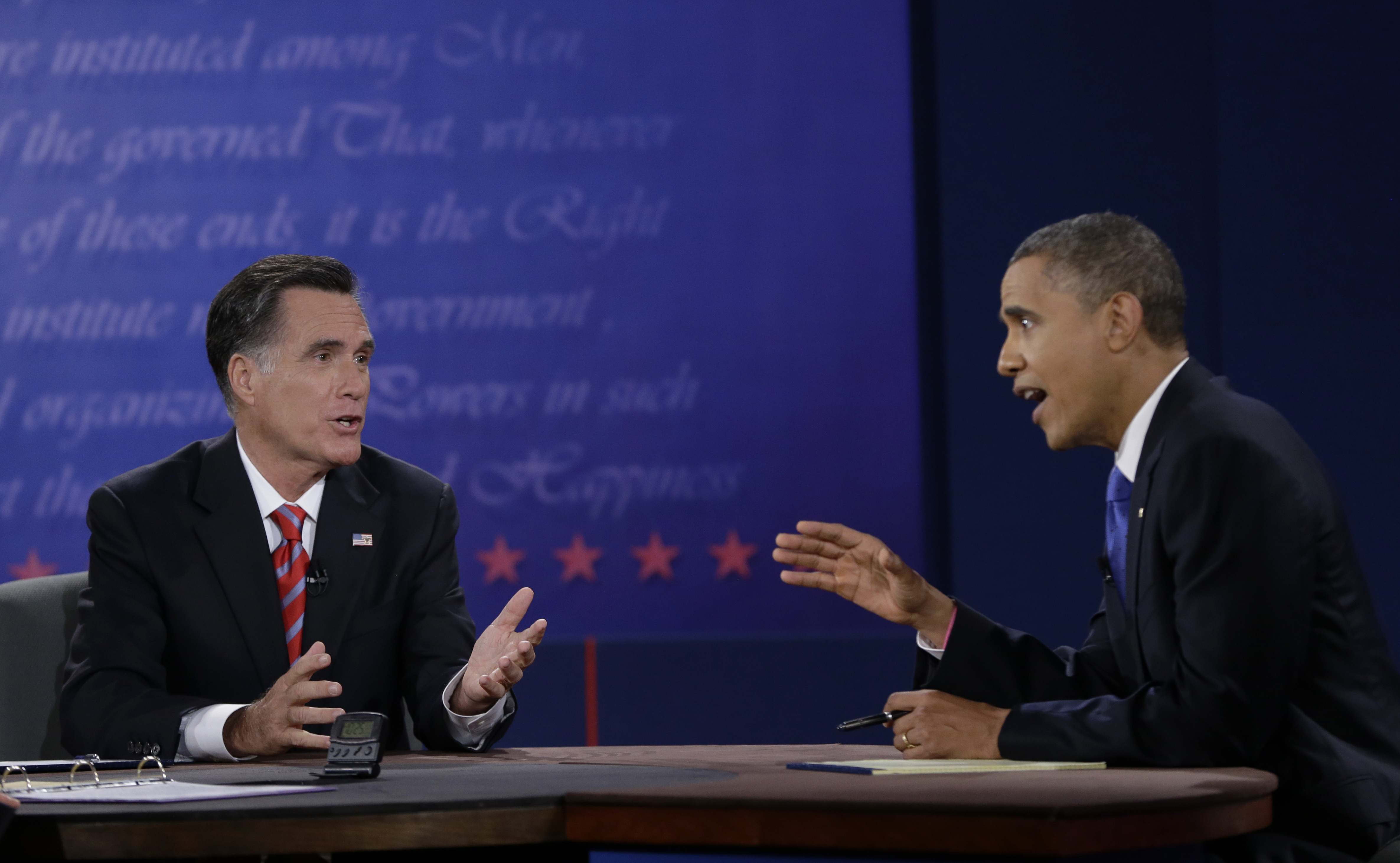The last debate: Will there be an end to climate silence?

In just a few short hours, the presidential candidates will have one last opportunity to break the climate silence by talking about climate change on the national electoral stage. What will play out will show us if the candidates and the media think that climate change is a boutique issue and one that impacts only the fringe of society — or if it is a serious issue that is impacted by and impacts the economy, jobs, health and our national security.
Last week’s town hall debate had a callous race to the bottom with each candidate pledging to frack here, drill there and burn more coal. I expected Governor Romney to pledge to carve up more of our natural resources to feed our hunger for fossil fuels – but when a self-described clean energy advocate berates his opponent for not supporting coal plants enough, something is wrong. That something is a colossal disconnect between the realities of climate change and current election rhetoric, and it has been felt all throughout both campaigns for months.
So it is not with any optimism that I approach tonight’s debate in Boca Raton. The debate’s focus on foreign policy should lead to a natural discussion on climate change, yet as it has happened in the past, the candidates are quick to talk about energy, while remaining mum on climate. Still, the stage has been set for a potential discussion. Secretary Clinton previewed the link between climate change and foreign policy in a recent speech at Georgetown University, saying that “reducing the world’s carbon emissions … is the core of a strong 21st century global economy.” Additionally, the Defense Department has identified climate change as having a “dramatic impact on national security.” Foreign policy experts are saying there are many reasons to talk about climate change at the debate. Many environmental and public advocacy groups are asking moderator Bob Schieffer to include a question about climate change in the debate.
And then comes the tough part: If the question is asked, what can we take away from the answers? How President Obama and Governor Romney respond to these questions will speak volumes to their understanding of the greatest challenges to U.S. domestic and foreign policy– climate change.
I hope that the president avoids the traps of championing an “all of the above” policy. I’ve written in the past about the hollowness and lack of moral leadership that comes with that irresponsible energy stance, but now the president takes it even further. It is hard to measure the seriousness of President Obama’s commitment to lead the fight against climate change if he is championing the same fossil fuels that got us into this mess in the first place. Unless Romney creates a “Nixon goes to China” moment, he is a lost cause on climate change and this could give Obama an edge with the coveted undecideds, who do value action on climate change. But we really do not know because the candidates are failing to give us specifics or even discuss this at a national stage.
If President Obama wins re-election, and I certainly hope he does, what will his mandate be to address climate change? What will be his mandate to:
- Further ratchet down greenhouse gas emissions from coal fired power plants;
- Increase spending and implement policies that increase renewable energy investment;
- Finally become global leaders in the global fight to reduce emission;
- Ensure that the United States is leading wealthy countries in helping countries less fortunate to adapt to the climate disruption that is already occurring;
- Fight the oil and gas industry in opposing the Keystone XL pipeline, fracking or more coal mining and exports?
If he were to lead with a robust debate on how we are going to address global warming in front of the American people, President Obama, if re-elected, would have a mandate to lead on these things. As it stands, his reckless adoption of an “all the above energy strategy” has put this and many other things in jeopardy.
As it gets closer and closer to Election Day, it has become increasingly clear that talking about climate change is politically safe. Numerous polls from this year suggest that climate change should be a uniting issue for voters and candidates. A majority of Americans belief in climate change’s influence on extreme weather, and a majority believe it is caused by humans. Another majority polled say they’ll factor it into their voting decision. In April, President Obama took an explicit stance on climate change in an interview with Rolling Stone magazine predicting that climate change will become “part of the campaign” in the immediate future. For that moment, the president displayed the potential leadership that could reach out to these voters that could bring people together under his climate advocacy.
What I’m waiting to see in this campaign is that kind of leadership. There is so much yet to be done, and neither President Obama nor Mitt Romney has been willing to capitalize on this clear connection with voters. The election is a huge opportunity to bring the country together under the issue of climate change, as it will affect every single one of us — and likely sooner than we think. And while the call for action grows with each day of climate silence, there is still hope that our candidates will use this last remaining debate as a national platform for stressing action on climate change.
It’s time to break their climate silence.
